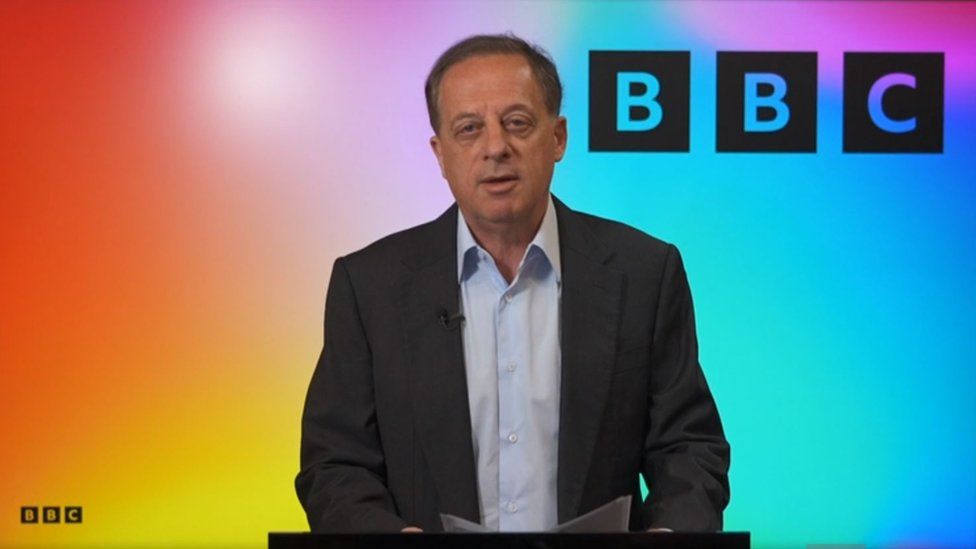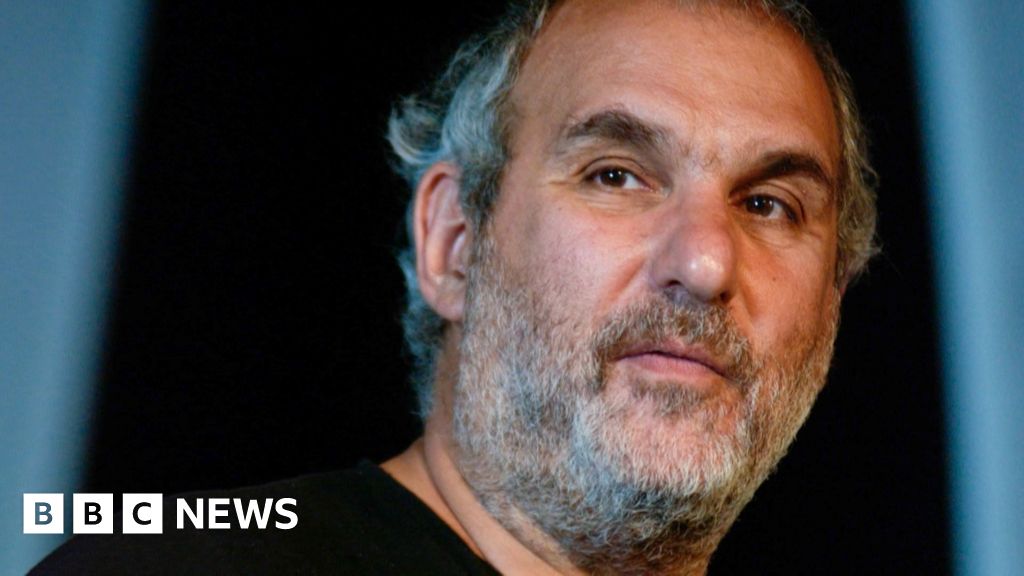ARTICLE AD BOX

Richard Sharp broke the rules governing public appointments, the report into his appointment concluded
By Katie Razzall
Culture and media editor, BBC News
When Richard Sharp opened the door to his house in west London yesterday afternoon and saw Tim Davie standing there - was that the moment the BBC chairman realised he had to resign?
We know the director general was there, because we had a camera operator outside the house.
This was after news broke that the report by Adam Heppinstall KC was about to come out.
He investigated the circumstances of Mr Sharp's appointment, and his role in an £800,000 loan guarantee to then-prime minister Boris Johnson.
We also know the BBC board had by then seen the full report.
But up until very recently, I understand Mr Sharp was not planning to resign. In fact, quite the opposite.
I've been in touch with Richard Sharp's external crisis communications consultant many times over the past three months. There was always a belief from that side that there was a way for the BBC chairman to ride out the story and get on with the job.
Image source, Getty Images
Image caption,Gary Lineker was suspended for his criticism of the language used around the government's asylum policy
The Heppinstall report is clear. Mr Sharp did break the rules governing public appointments (he "failed to disclose potential perceived conflicts of interest to the panel which interviewed candidates and advised ministers on who to appoint").
As he resigned this morning, Mr Sharp said he had always "maintained the breach was inadvertent".
But for the three months since the story broke, it has been clear to many that, whatever the truth, the chairman would have to fall on his sword.
And for several months, the perception by many has been that the chairman - and the BBC - have been compromised.
The Gary Lineker firestorm fed into that. How could a freelance sports presenter who was tweeting his outrage at the government's small boats policy be taken off air, when a conservative-linked chairman facing claims of cronyism was still in his role?
That was very damaging, not just to Richard Sharp's chances of survival, but to the wider BBC.
As the Heppinstall report states: "perceptions, including things which might be wrongly misconstrued by others, are as important as actual conflicts of interests", because of "the erosion of public trust and confidence".
His departure felt inevitable, particularly as it became clear that Simon Case, the Cabinet secretary the UK's top civil servant, was not going to back him in the way Mr Sharp had hoped.
This report lays bare that for Mr Sharp to have had any chance of surviving this crisis, his account would have to be backed up by the only other person in the room where he says he discussed a potential conflict of interest.
Mr Case didn't do that (and questions around his judgment and involvement may now become the story).
Image source, Getty Images
Image caption,The BBC chairman is a political appointment
As for Mr Sharp's departure, I understand conversations between the BBC and the government have been had in recent days. You'd expect that.
The BBC chairman is a political appointment.
In the end, Mr Sharp resigned, finally accepting his time at the BBC was up. When he found Mr Davie on his doorstep, he may not have accepted at that moment that he had to go.
But over the course of the afternoon and evening, something obviously shifted.
When he made his resignation statement to the camera, he looked like he'd had little sleep. Mr Sharp has always appeared immaculately dressed; today he looked tired and less polished. A man who had been through a political storm, albeit of his own making.
Perhaps the biggest personal lesson from all this is about Boris Johnson.
Mr Sharp has known the former prime minister for many years. And it was that association, which some say helped him get the job in the first place, that in the end has brought him down.

 2 years ago
55
2 years ago
55








 English (US) ·
English (US) ·